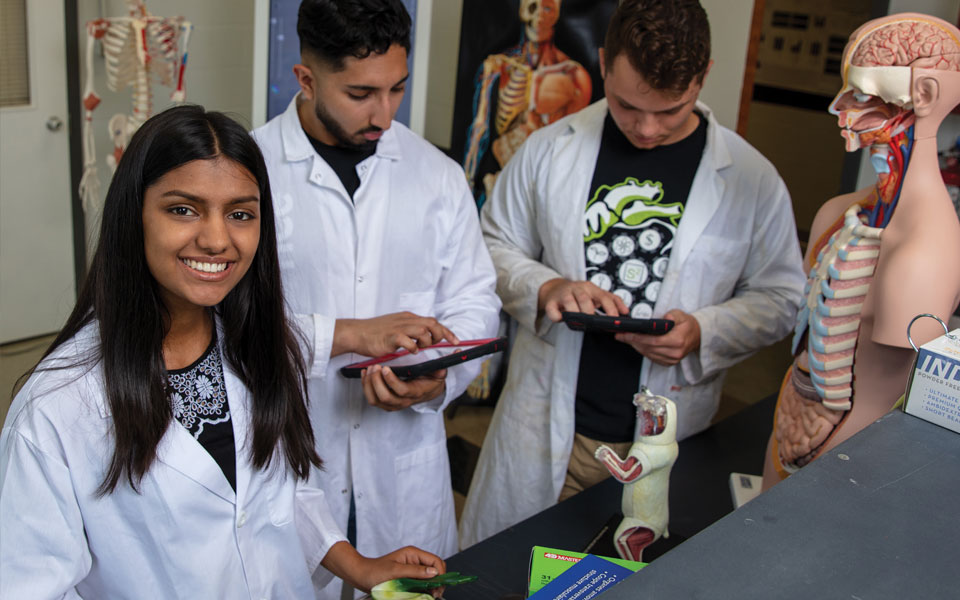
Program Overview & Highlights
- Honours 4-year program
- Thesis Available
- BSc
Be on the cutting edge of scientific research in this program that focuses on human health and disease. The curriculum integrates hands-on learning in labs and provides opportunities for undergraduate research. You will be exposed to the latest molecular and cellular biology research and technology, while building transferable skills that are essential to careers in health sciences, industry, government and education.
Specializations & Streams
The Interdisciplinary Health Sciences program provides an exciting opportunity to combine a Biological Sciences, Biomedical Sciences and Psychology degree with unique interdisciplinary concentrations. This program allows students to explore global challenges and grow as thought leaders who can tackle issues in areas like global health, the environment and climate change, and sustainable development.
Multiple concentrations: Healthcare Economics, Healthcare Informatics, Health and Aging, Health and Society, Health and Gender Studies, Indigenous Health, Healthy Spaces and Place, Medical Humanities, One Health (Environmental Health) and Biostatistics.
Calling all future health professionals! This program gives you a strong background in both biochemistry and biomedical sciences, fundamental to health and medicine. You’ll be in a lab within the first two weeks of this program and get the chance to conduct undergraduate research with hands-on learning in courses like CURE. You’ll get a chance to work alongside clinical researchers and medical professionals to learn about funding, project management, communication and other issues of cancer and health research.
Learn More About Our Program
Admission Requirements
High School Student from Canada
Course Requirements: Advanced Functions/MHF4U, Chemistry/SCH4U, Biology/SBI4U. English/ENG4U
Strongly Recommended: Calculus & Vectors/MCV4U
Recommended: Physics/SPH4U
Minimum Average: 70% on all attempted science and math courses.
*Biochemistry and Biomedical Sciences (Health Science Stream requires 75% on all attempted science and math courses)
Language Requirements
To review the most up-to-date information on Undergraduate Language Requirements: See undergraduate language requirements.
Academic Calendars
Career Tracks
- Professional school (medicine, pharmacy, dentistry)
- biomedical and biotechnical researcher
- quality assurance supervisor
- clinical researcher
- consultant